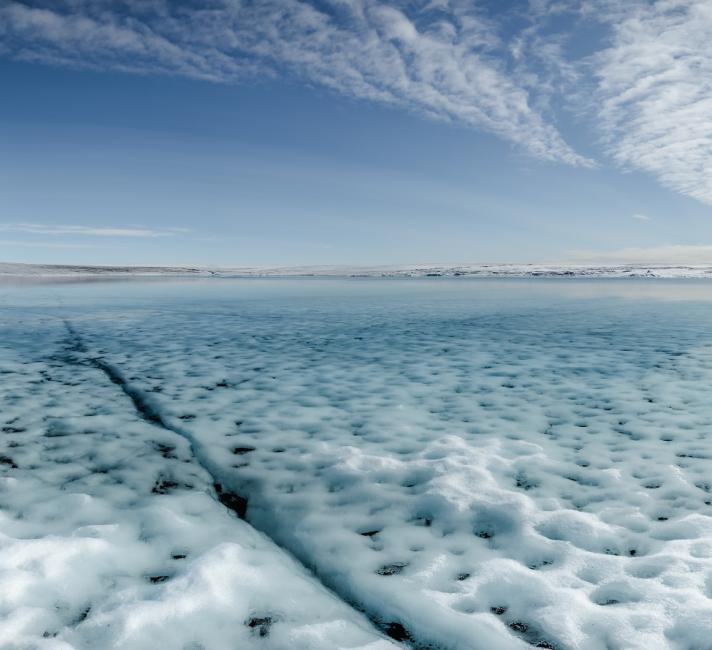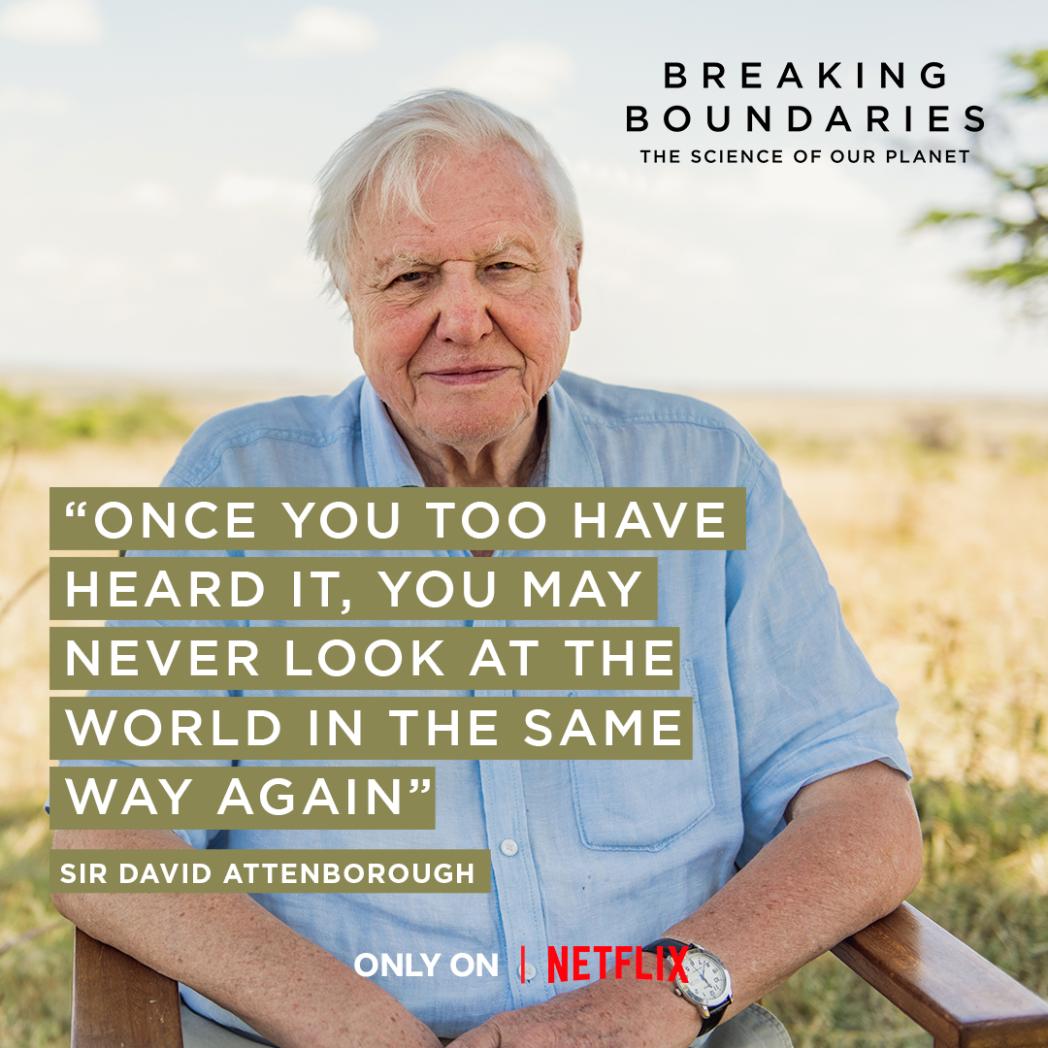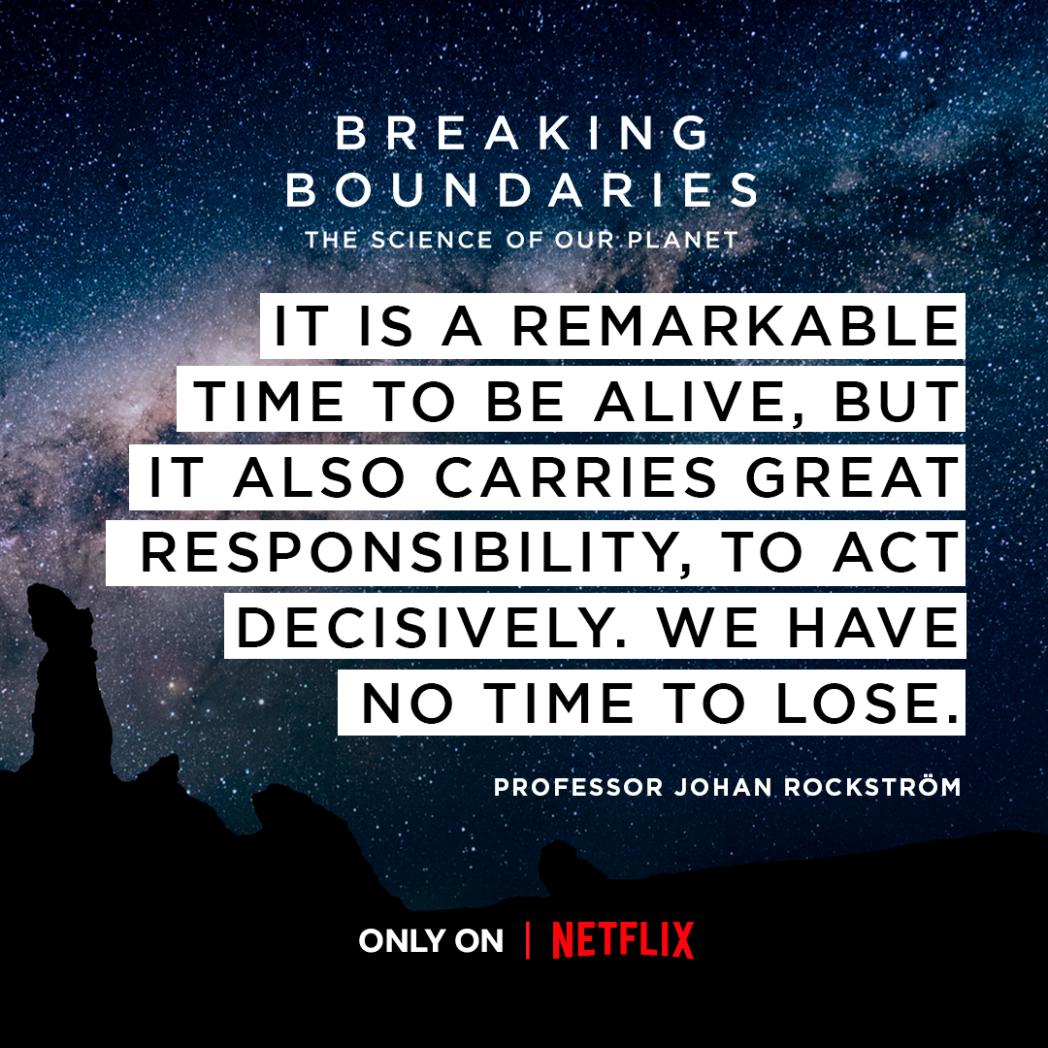
Breaking Boundaries: Becoming a Planetary Steward
WWF is hosting content relating to Breaking Boundaries on behalf of a collaboration with the following organisations

Ignite the climate and nature recovery
The challenges facing our world have never been more serious. From the Amazon rainforest to the polar ice sheets, the latest research – as explained in Breaking Boundaries: The Science of our Planet – shows that the life-support systems helping to regulate our Earth and maintain its stability are accelerating towards tipping points that threaten the future resilience of our planet.
But we know what must be done to transform at pace and stay within a safe operating space for a stable planet. We must all become planetary stewards – protecting and restoring our natural world while we still have time. Only by doing so can we ensure a sustainable and equitable future for people and the natural world.
At this critical time for climate and nature, environmental philanthropy has the potential to help ignite a nature and climate recovery. Whether you already support environmental causes, or are unsure where to start, the following information is designed to help you on your philanthropic journey. Now is the moment to make nature central to your philanthropic giving to secure a thriving future for all.

How to get involved
These organisations can give support, advice, and resources about environmental and climate philanthropy, bring you closer to the solutions, and connect you to other funders. Please get in touch using the relevant contact details to start or develop your giving.
Active Philanthropy organises expeditions to Greenland to learn about the climate crisis and potential solutions, and supports philanthropists, donor families, and philanthropic organisations with strategy building and grant management services. Please contact Felicitas von Peter at vonpeter@activephilanthropy.org
The Climate Leadership Initiative (CLI) connects philanthropists to the resources they need to advance a healthy and more equitable world. When working with CLI, philanthropists can get started quickly, receive tailored guidance on high-impact solutions, and engage with our network of peers and climate experts. Founded by leading climate philanthropists and funders, CLI advises on giving opportunities without charging for its services, fundraising for itself, or pooling grant dollars. Please contact Ulla Erhardt at ulla.erhardt@climatelead.org or visit www.climatelead.org.
Environmental Funders Network is the UK-based network of foundations, family offices and individual donors supporting environmental causes. Please contact Jane Cabutti, jane@greenfunders.org for more information. We produce research and reports to inform environmental giving, and bring funders together to share information and learn from experts and one another (some of our previous meetings are here).
Impatience Earth is a team of climate and philanthropy experts providing advice to donors who are new to climate philanthropy and looking to commit £1 million to £10 million to addressing the climate crisis. Please contact Jouja Maamri at Jouja@impatience.earth.
The Potsdam Institute for Climate Impact Research (PIK) is headed by Professor Johan Rockström, the scientist at the centre of Netflix’s Breaking Boundaries film. From natural science to social science, from risks to solutions, from identifying Planetary Boundaries to managing Global Commons: PIK is advancing the frontier of integrated research for global sustainability, and for a safe and just climate future. If you want to explore initiatives that advance the science of Our Planet, please contact Owen Gaffney at owen.gaffney@pik-potsdam.de.
Synchronicity Earth is focused on identifying robust initiatives working on the ground to protect and restore threatened species and ecosystems. It brings foundations and other funders together to explore a range of funding approaches that suit the development of long-term, collaborative conservation programmes. Please contact Jessica Sweidan at jessica@synchronicityearth.org.
WWF is the world’s leading conservation organisation. It works with environmental philanthropists to address the urgent climate crisis, protect species and habitats, and enable communities to live in harmony with nature. The generous support of philanthropists is pivotal as WWF seeks to promote, protect, and preserve our natural world. Click here to read about some of the initiatives WWF is focused on. To learn more, please email Lucy Sargent at lsargent@wwf.org.uk or call (+44) 01483 412424. We will be happy to arrange a time to speak with you or to connect you to our scientific experts for further conversations.

Breaking Boundaries: Key focus areas for philanthropic impact
Breaking Boundaries highlights the planetary thresholds we must not exceed, not just for the stability of our planet, but for the future of humanity. It offers up the solutions, which we can and must put in place now if we are to protect Earth’s life support systems. Below are some of the changes we can all start implementing now to help save our one planet.
Decarbonisation
The world is warming. In a single lifetime, we’ve seen the widespread destruction of our natural world and our air filled with harmful emissions. This is creating a hotter, less stable planet for people and nature – with climate change increasing the frequency and intensity of extreme events, such as heatwaves, floods, droughts, and wildfires, putting people and species under greater pressure. While we can’t stop global warming in its tracks, we can limit how much warmer it gets. We need exponential change to phase out fossil fuels by cutting our emissions in half every decade to achieve net zero. What we do in the next decade, starting right now, is vital.
Nature based solutions
Moving to net zero emissions on its own is not enough: we must also “draw down” the carbon that is already overheating the planet. And there’s one very effective way to do this: plant more trees and invest in nature-based solutions that lock up and store carbon. A global effort to restore nature could be one of the most cost effective and achievable solutions to the climate crisis, as we transform our world to become nature positive by 2030. Planting trees and restoring carbon-critical ecosystems will have huge benefits for our planet’s biodiversity, but it will also help to stabilise our climate, support sustainable food production systems, and protect many other services that nature provides for free.
Healthy and sustainable diets
Food is at the heart of many environmental issues – it is a significant contributor to climate change and responsible for almost 60% of global biodiversity loss. Removing deforestation from our food supply chains and eating a healthy, sustainable diet with more plants and less meat might be the most important way that individuals can contribute to saving the planet. We must drive a global shift in the way we eat, produce, and connect with food to dramatically increase the chances of preserving a safe operating space for people and nature to thrive.
Waste is a waste
Our waste is created by design. When we make products, we rarely build in the means to recover the raw materials. If we were to turn that linear system into a circular one, designing products so that the raw materials can all be recovered, our use of resources could be infinite. As we rebuild our economies following the global pandemic, we can choose to do nothing more than plug the holes in a faulty system, or we can reset the game altogether by building a more resilient economy—one that is more effective and less wasteful.
Continuing the conversation
Following the launch of this important film, led by Professor Johan Rockström, we will be co-hosting The Science & Solutions Series to carry on the conversation. This events programme will see leading environmental philanthropists in discussion with the experts to dive deeper into the science and solutions behind the critical areas above. To find out more about this series and register your interest, please email specialevents@wwf.org.uk.
